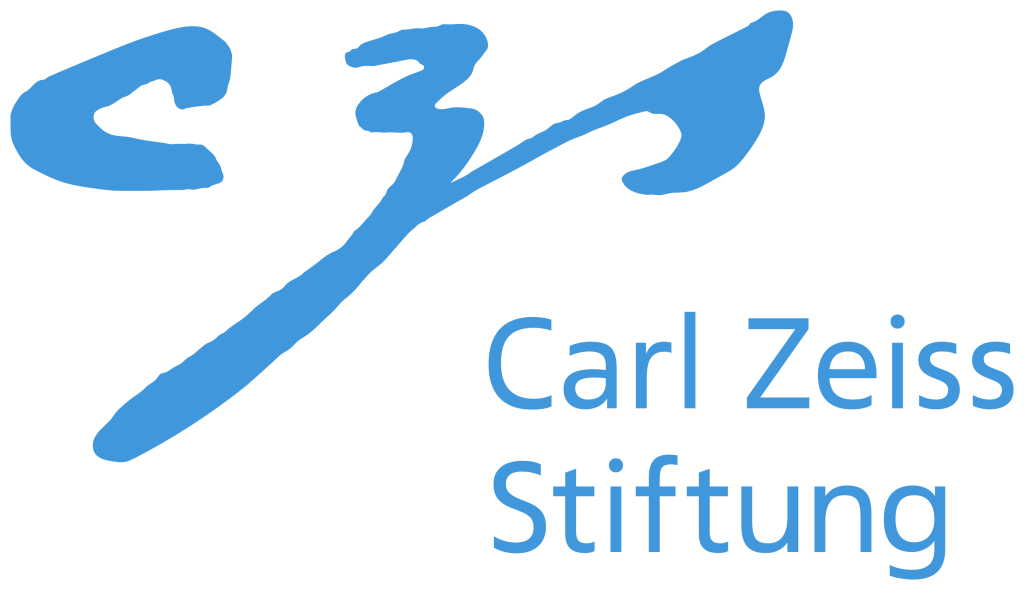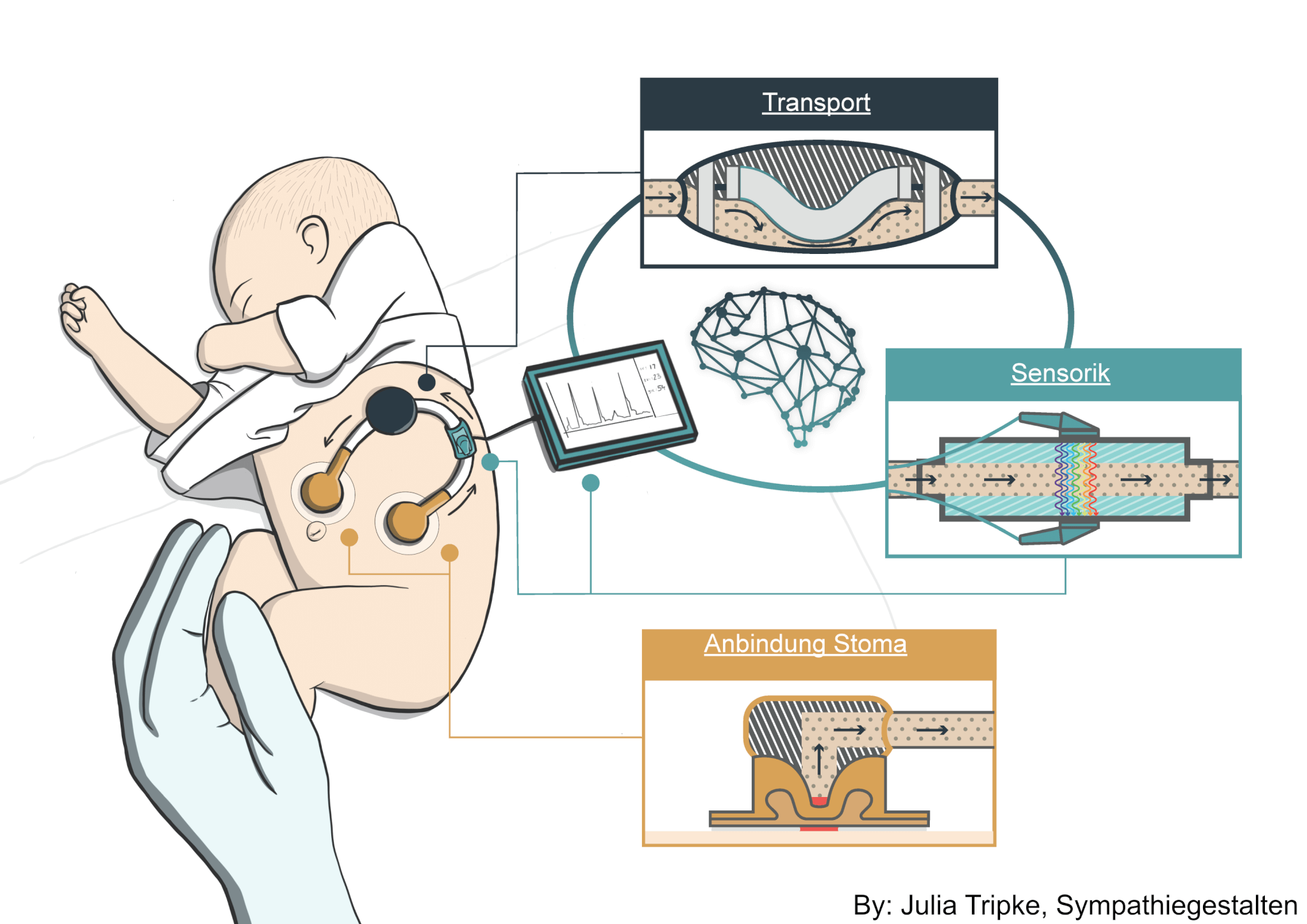Development of a more efficient treatment approach to obtain information regarding nutrient uptake in premature infants using a miniaturized transport and sensor concept

Project period |
Jan 01, 2023 – Dec 31, 2024 |
Sponsor |
Carl-Zeiss-Stiftung |
Project Management |
Prof. Dr. Iwan Schie |
Budget |
750 000 € |
Funding code |
P2022-03-038 |
Research partner |
Newborns and premature infants often require surgical relief of the intestine as a result of intestinal pathology. Two ends of the intestine are transferred to the outside and connected to the skin (so-called ileostomy). Relevant risks include infections, liver failure and potential nutritional and developmental disorders. The Passage of intestinal contents (chyme) from the feeding (oral) to the draining (aboral) enterostoma reduces stunting of the post-stomatal intestine, promotes nutrient absorption, fetal growth, and facilitates subsequent repositioning. Currently, chyme is collected in stoma bags over many hours and, at best, transferred by syringe – discontinuously and nonphysiologically. For technical reasons, it is often neither possible to collect and transfer the total amount, nor – because of the small and valuable quantities – to ensure that the composition can be analyzed. Decisive information about nutrient uptake and thus potential therapeutic interventions can, however, only be obtained by continuous knowledge of specific parameters (quantity, density, viscosity, pH, NaHCO3-, electrolytes, fatty acids, etc.).

Objective
The goal is the research and development of a closed intelligent circuit, which is characterized by the continuous acquisition of the quantity or chemical composition of the chyme. For this purpose, in addition to automated chyme transfer using a pump system, marker-free as well as non-destructive spectroscopic real-time analysis is planned. The core piece for the transfer is a micro peristaltic pump (Friedrich Schiller University) with integrated sensors (University of Applied Sciences Jena and Friedrich Schiller University), which is connected to the stomata via a flexible tube system (Jena University Hospital).
The use of the system should thus enable improved diagnostics in newborns and premature infants with surgical intestinal decompression without additional contamination.

Konstantin Gramatte
